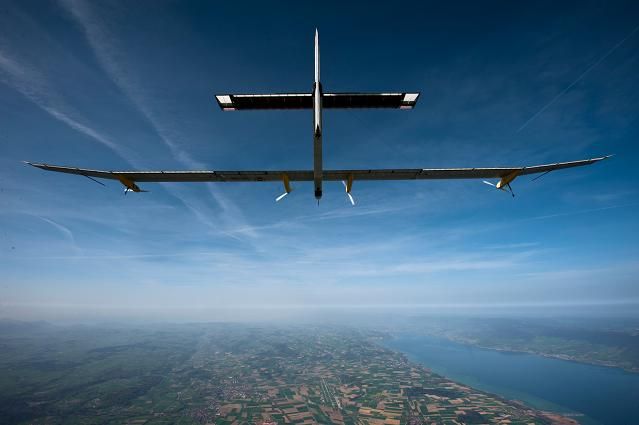Abu Dhabi to host first round the world solar flight
Solar Impulse 2 flight will start and finish in the capital city of the United Arab Emirates (UAE) and the announcement was made in New York during the United Nations General Assembly last week

Abu Dhabi has been announced as the host of the first solar-powered flight around the world, which co-founders and pilots, Bertrand Piccard and André Borschberg, are planning to attempt in March 2015 with Solar Impulse 2.
The flight will start and finish in the capital city of the United Arab Emirates (UAE) and the announcement was made in New York during the United Nations General Assembly last week.
Masdar, Abu Dhabi's renewable energy company, is the host partner of Solar Impulse and the key training will last for two months from the start of January for testing.
H. E. Dr. Sultan Ahmad Al Jaber, UAE minister of state and chairman of Masdar said: "Abu Dhabi, Masdar and Solar Impulse have in common a pioneering spirit, a long-term vision and a desire to explore new horizons. We share a commitment to foster the development of technological advances in alternative energy sources in order to contribute to a cleaner, more sustainable future."
The choice of Abu Dhabi to host the start and end of the flight reinforces the Emirate's status as a pioneer in solar energy innovation.
The partnership between Masdar and Solar Impulse started in 2003 and promotes innovation of clean and energy efficient technologies.
The flight is expected to take 25 flying days over 4 or 5 months and Solar Impulse is currently finalising stopovers in Asia, the United States and in Southern Europe or North Africa, before returning to Abu Dhabi in July 2015.
Some flights over the Pacific and the Atlantic will last 5 to 6 days, a feat only made possible by the aircrafts ability to fly without fuel.
Swiss pilots and co-founders of the project, Dr. Bertrand Piccard and Andre Borschberg, will take turns to pilot the flight and will carry six oxygen bottles, a parachute, a life raft, and food and water for a week.
Solar Impulse 1, became the first solar airplane ever to fly through the night and Solar Impulse 2 has completed 11 successful test flights since its first on 2 June.
Piccard and Borschberg founded the Solar Impulse project in November 2003 after undertaking a feasibility study in partnership with the Ecole Polytechnique Fédérale de Lausanne.
By 2009, they had assembled a multi-disciplinary team of 80 specialists from different countries, assisted by about 100 outside advisers and the project is financed by a number of partner companies and individuals.
The cost of the project is estimated to be around US$160 million and corporate sponsors include Swiss watchmaker Omega and Schindler Holding AG.
The Solar Impulse 2 aircraft has been designed for the round-the-world flight and has a wider wingspan, more efficient engines, an improved single person cabin, and is made from lighter materials.
At 72 metres wide, the wings are larger than those on a Boeing 747, and have been fitted with more than 17,000 solar cells that convert sunlight into electricity to power its four engines.
The aircraft weighs just 2,300 kg which is approximately the same as the average car.
Solar Impulse 2 will be showcased during the World Future Energy Summit as part of the Abu Dhabi Sustainability Week, which is hosted by Masdar between 17 and 22 January 2015.
Nestle SA prepared special food for the flight, as the pilots need dried products that can withstand 95 degrees Fahrenheit and temperatures below freezing at night.
The plane has a built-in toilet, a step up from the previous model, where the pilots resorted to using bottles for that function.
The flight coincides with next year’s United Nations UNFCCC COP21 climate conference in Paris and Piccard said: “We hope to have more people joining us. Our goal isn’t a revolution in aviation. Our goal is a revolution in people’s minds about clean technology.”



_400_250_80_s_c1.jpg)


